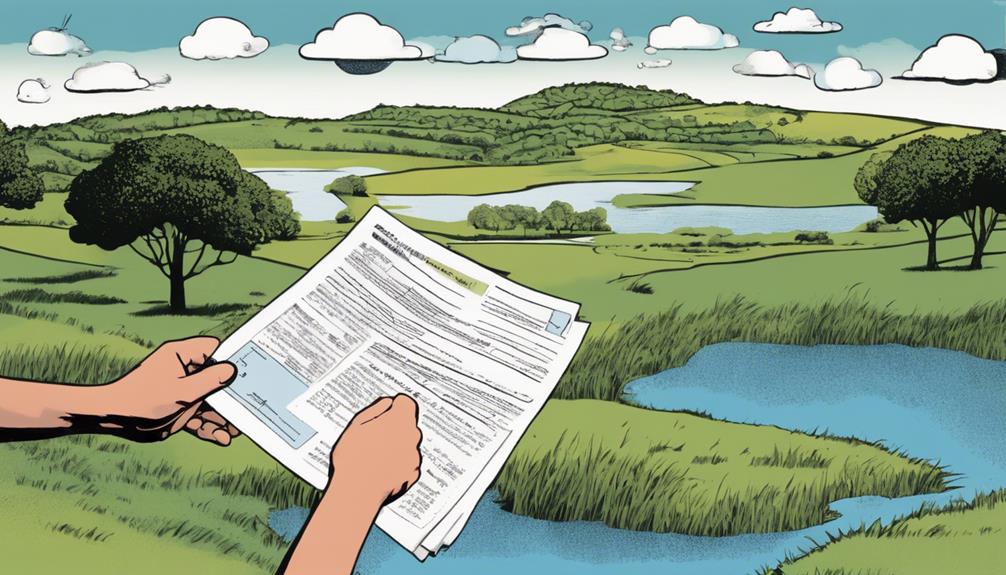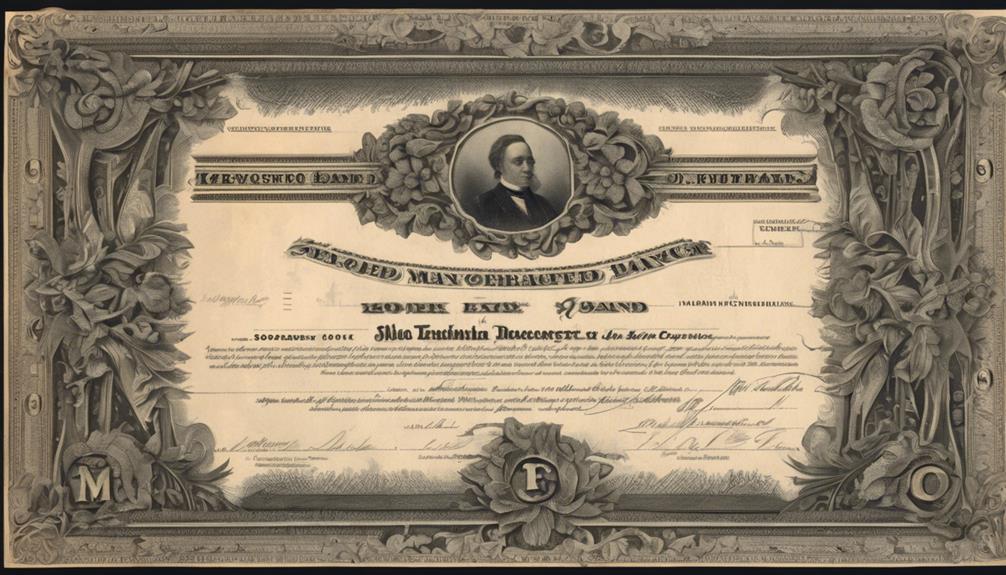If you're considering starting or operating a collection agency in West Virginia, understanding the Collection Agency Bond is essential. This bond not only fulfills legal obligations but also plays a significant role in building trust with your clients. It acts as a safeguard, protecting consumers from potential misconduct, which can be a critical factor in your agency's reputation and long-term success. What you might not realize, though, is how this bond can impact your daily operations and client relationships in ways that go beyond mere compliance.
Understanding Collection Agency Bonds

When you're diving into the world of collection agency bonds, it's crucial to understand their purpose and significance. These bonds act as a safety net, ensuring that collection agencies operate ethically and comply with state regulations.
Essentially, a collection agency bond protects consumers and the state from any potential misconduct by the agency. If a client suffers financial harm due to unethical practices, they can file a claim against the bond to seek compensation.
Additionally, compliance with bond requirements fosters ethical operation of collection agencies and ensures protection for consumers against fraudulent practices, thereby reinforcing the importance of the role of compliance in maintaining industry standards.
You might wonder how this affects you directly. If you're considering starting a collection agency or working with one, knowing about these bonds helps you grasp the legal landscape.
You'll realize that having a bond isn't just a regulatory requirement; it's a badge of trustworthiness that can attract more clients.
Moreover, collection agency bonds can enhance your reputation, as they signal your commitment to fair practices. In a competitive market, demonstrating financial responsibility through bonding can set you apart.
Legal Requirements in West Virginia
In West Virginia, specific legal requirements govern the operation of collection agencies, and understanding these can significantly impact your business.
First, you'll need to obtain a license from the West Virginia Division of Banking. This involves submitting an application that includes your business details, ownership information, and a non-refundable fee.
You're also required to secure a collection agency bond, which acts as a financial guarantee that you'll operate ethically and in compliance with state laws.
Additionally, you must adhere to the Fair Debt Collection Practices Act, which outlines how you can interact with debtors, ensuring your practices are fair and legal.
Moreover, it's essential to maintain clear records of all your transactions and communications with debtors. This not only helps in case of disputes but also demonstrates your compliance with the law.
Regular renewals of your license and bond are necessary to keep your operations running smoothly.
Lastly, staying updated on any changes in state laws or regulations is crucial for your agency's success.
Purpose of the Bond

A collection agency bond serves as a crucial safety net for both clients and debtors, ensuring that you operate your business ethically and responsibly. This bond provides a financial guarantee that you'll adhere to state regulations and industry standards. If you fail to comply with the law or mistreat clients and debtors, the bond can cover any financial losses incurred, offering protection to those affected by your actions.
By obtaining this bond, you signal your commitment to ethical practices and accountability. It reassures your clients that you're serious about maintaining a trustworthy operation. When clients know they're protected, they're more likely to engage your services, fostering positive relationships that can lead to long-term success.
Moreover, the bond acts as a safeguard for debtors. It ensures that you won't engage in unfair or deceptive practices when collecting debts. This assurance helps promote fairness in the collection process, contributing to a more balanced and just business environment.
Ultimately, the purpose of the collection agency bond is to reinforce trust and integrity in the debt collection industry, which benefits everyone involved.
Benefits for Collection Agencies
Collection agencies see numerous benefits from obtaining a bond, which enhances their credibility and trustworthiness in the industry. When you secure a bond, you signal to clients and consumers that you're committed to ethical practices and financial responsibility. This assurance can attract more clients, as businesses often prefer working with bonded agencies.
Additionally, debt consolidator bonds serve as a safeguard for consumers, ensuring compliance with regulations and protecting against unethical behavior, which can further bolster your agency's reputation as a trustworthy service provider ensuring compliance with regulations.
Moreover, a bond can help you stand out in a competitive market. By demonstrating your compliance with state regulations, you show potential clients that you take your responsibilities seriously. This can lead to greater client retention and referral opportunities, as satisfied clients are likely to recommend your services.
Additionally, having a bond can protect you from potential financial losses. If a client files a claim against your agency due to unethical behavior or failure to fulfill obligations, the bond can cover those costs, safeguarding your business's finances. This added layer of security can give you peace of mind as you focus on growing your agency.
Lastly, being bonded may also improve your relationships with creditors and suppliers, as they may view you as a more reliable partner. Overall, securing a bond can significantly enhance your agency's reputation and operational stability.
How to Obtain a Bond

Securing a bond isn't as daunting as it may seem. The process can be straightforward if you know what steps to take.
First, you'll need to gather the necessary documentation, including proof of your business's legitimacy and any required financial statements. This information helps the surety company evaluate your application and ensures compliance with regulations, as outlined in money transmitter bonds.
Next, you'll want to research and select a reputable surety company that specializes in collection agency bonds. Look for companies with a strong track record and positive reviews from other clients.
Once you've chosen a surety, you'll submit your application along with the gathered documents.
After your application is reviewed, the surety will assess your risk based on your financial history and business practices. They might request additional information or clarification during this stage.
If approved, you'll receive a quote detailing the bond amount and terms.
Costs Associated With the Bond
Typically, the costs associated with obtaining a West Virginia collection agency bond vary based on several factors, including your credit score and the bond amount required.
Generally, the bond amount can range from $10,000 to $25,000, and this amount directly influences your premium.
If you have a strong credit score, you might pay a lower premium, often between 1% to 5% of the total bond amount. For instance, if your bond is $10,000 and your rate is 2%, you'll pay $200 annually.
Conversely, if your credit score is less than stellar, you could see rates rise to 10% or more, increasing your annual cost significantly.
Additionally, some surety companies might charge administrative fees or processing fees, so make sure to factor these costs into your budget.
The total expense will also depend on the specific requirements of the West Virginia state regulations.
Bond Renewal Process

Renewing your West Virginia collection agency bond is a straightforward process that you'll need to complete periodically to maintain compliance with state regulations.
Typically, you'll start the renewal process a few weeks before your current bond expires. This gives you ample time to gather any necessary documents and avoid any lapses in coverage.
First, contact your surety bond provider to confirm the renewal process and any required documentation. You may need to provide updated financial information or undergo a credit check, depending on the surety company's policies.
It's essential to review your bond amount to ensure it still meets state requirements.
Once you've provided all necessary information, your surety company will issue a renewal quote. If everything looks good, you'll pay the renewal premium, which might vary from your original cost based on changes in your financial situation or market conditions.
After payment, your surety will issue a new bond document, which you'll need to file with the appropriate state agency.
Make sure to keep a copy for your records. Completing this process on time ensures your collection agency remains compliant and avoids any penalties or interruptions in operation.
Common Challenges Faced
Navigating the complexities of maintaining a West Virginia collection agency bond can present several challenges. One significant hurdle is ensuring compliance with state regulations, which can often change. You need to stay updated on the latest requirements to avoid penalties or bond forfeiture.
Another challenge is the financial aspect. The cost of obtaining and renewing your bond can strain your budget, especially if unexpected fees arise. You may also encounter issues with your credit score impacting your bond rates, leading to higher costs.
Additionally, finding a reliable surety company can be daunting. Not all companies specialize in collection agency bonds, so you'll have to do your homework to ensure you're working with a reputable provider.
Lastly, you might face challenges in managing claims against your bond. If a consumer files a complaint, it could lead to financial liability for your agency if the claim is validated. This couldn't only strain your resources but also impact your ability to serve clients effectively.
Impact on Business Reputation

A strong business reputation is crucial for a collection agency, and the status of your West Virginia collection agency bond can significantly influence how clients and consumers perceive your firm. When clients see that you maintain an active and valid bond, it signals professionalism and compliance with state regulations. This can build trust and reassure them that you're a reliable partner for managing their collections.
On the other hand, if your bond is inactive or if there are claims against it, potential clients may view your agency as less credible. This negative perception can lead to lost business opportunities, as clients may choose to work with competitors who've a better reputation.
Moreover, a solid reputation not only attracts clients but also helps in retaining them. Satisfied clients are more likely to refer you to others, expanding your network and enhancing your agency's visibility.
Therefore, prioritizing your bond status isn't just about compliance; it's about safeguarding your agency's reputation in a competitive market. By ensuring your bond is in good standing, you're making a statement about your commitment to ethical practices and quality service.
Resources for Further Information
While understanding the requirements for a West Virginia collection agency bond is essential, knowing where to find reliable resources can make the process smoother.
Start by visiting the West Virginia Secretary of State's website. They provide up-to-date information on licensing requirements and bonding regulations. You can also check the West Virginia Division of Financial Institutions for insights on financial requirements specific to collection agencies.
Another valuable resource is the National Association of Retail Collection Attorneys (NARCA), which offers guidance and networking opportunities for collection agencies. Their website features articles and forums that can help you navigate the complexities of collection agency bonds.
Additionally, consider reaching out to bonding companies directly. They often have customer service representatives who specialize in the collection agency sector and can guide you through the bonding process.
Conclusion
In summary, securing a West Virginia Collection Agency Bond is essential for your agency's compliance and credibility. It not only protects consumers from potential misconduct but also bolsters your reputation in the industry. By understanding the legal requirements and benefits, you can navigate the bonding process more smoothly. Remember, this bond is more than just a legal obligation; it's a commitment to ethical practices that can significantly impact your business's success.











































